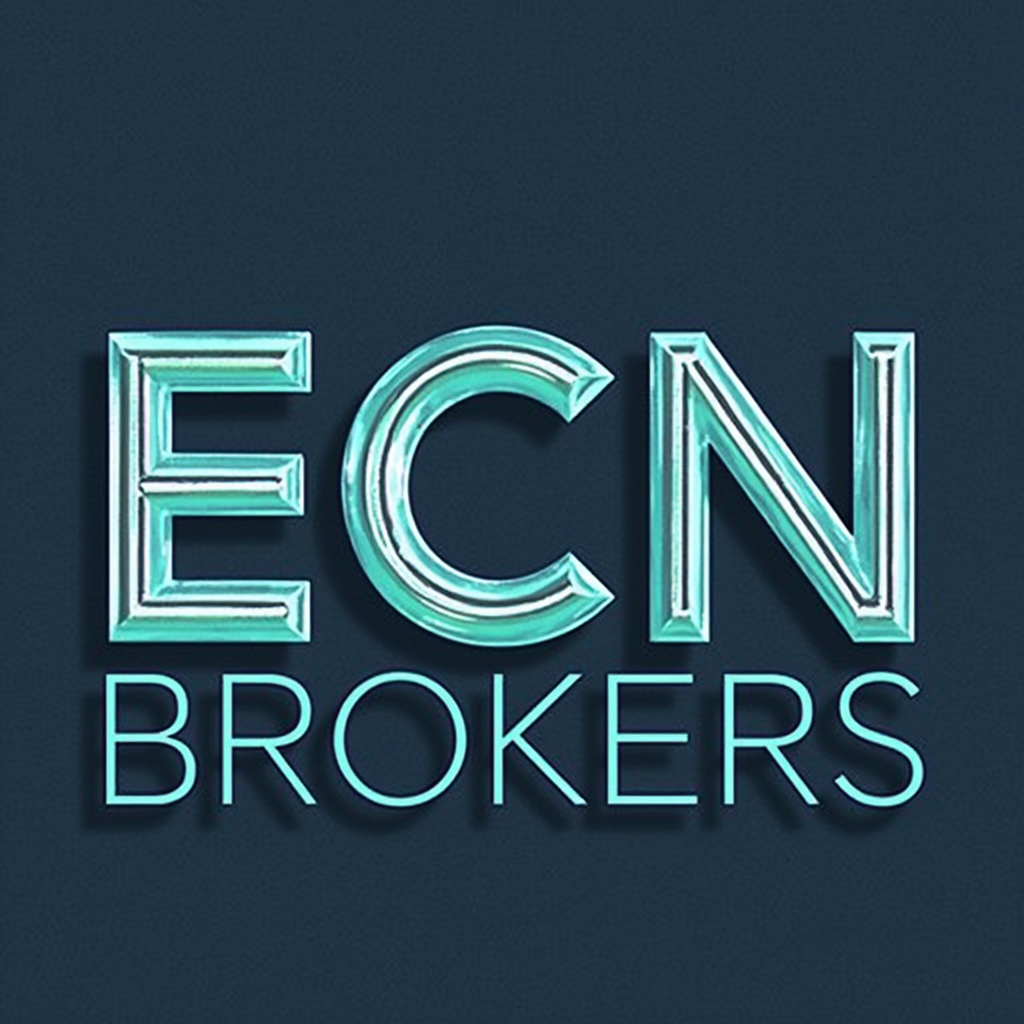
ECN Broker Operations
Liquidity Pool Connectivity
Electronic Communication Network (ECN) brokers connect traders directly to a network of liquidity providers, including banks, financial institutions, and other market participants. Unlike dealing desk brokers, ECN brokers aggregate orders from multiple sources, ensuring a more competitive and transparent trading environment. This model allows traders to access the best available bid and ask prices from a diverse range of market participants.
Through this liquidity aggregation, ECN brokers provide deep order books that reflect real market conditions. The ability to match orders with multiple liquidity providers reduces slippage and ensures that traders receive more accurate pricing, which is especially beneficial in high-volatility markets.
Order Matching Mechanism
The core function of an ECN is to facilitate direct trading by matching buy and sell orders in real-time. Unlike market makers that take the opposite side of a trade, ECN brokers operate on a non-dealing desk (NDD) model, where transactions occur between market participants without broker intervention.
Orders are executed using an electronic matching system, ensuring that trades are filled at the best available price from the liquidity pool. This process eliminates price manipulation and ensures a level playing field for all traders. Additionally, ECN brokers charge a fixed commission per trade rather than profiting from spreads, reinforcing their role as neutral facilitators of market transactions.
Transparent Pricing Dynamics
Pricing in an ECN environment is derived from real-time market conditions rather than being set by a single broker. Since multiple liquidity providers contribute to the order book, traders gain access to dynamic bid-ask spreads that fluctuate based on market supply and demand.
The transparency of ECN pricing benefits traders by allowing them to see market depth, which displays pending buy and sell orders at different price levels. This visibility provides insights into potential price movements and enhances strategic decision-making. Additionally, because ECN brokers do not manipulate spreads, traders often experience lower costs and better execution quality compared to traditional brokers.
ECN Trading Advantages
Tight Spreads and Real-Time Quotes
One of the key advantages of trading with an ECN broker is the availability of tight spreads, often as low as 0.0 pips in certain market conditions. Because pricing comes from multiple liquidity providers, bid and ask prices remain competitive, reducing the cost of trading.
Real-time quotes ensure that traders receive the most accurate pricing possible, minimizing discrepancies between expected and executed prices. This is particularly important for scalpers and high-frequency traders who rely on precision and fast execution to capitalize on small price movements.
Elimination of Trading Desk Intervention
Unlike dealing desk brokers, ECN brokers do not take the opposite side of their clients’ trades. This structure eliminates the risk of a broker profiting from a trader’s losses and ensures there is no conflict of interest. Instead of acting as market makers, ECN brokers facilitate direct transactions between market participants.
The absence of dealing desk intervention reduces the likelihood of order rejections and requotes. Traders benefit from an unbiased trading environment where market forces dictate price movements rather than broker-driven adjustments.
Enhanced Execution Speed and Efficiency
ECN brokers provide some of the fastest execution speeds in the forex and CFD markets. Since orders are processed directly within the liquidity network, trades are executed almost instantaneously, minimizing latency and slippage.
For traders engaged in strategies that require rapid order execution—such as scalping or algorithmic trading—ECN execution ensures that positions are filled at the most competitive prices with minimal delay. Furthermore, the ability to trade outside standard market hours allows greater flexibility for those operating in global markets.
ECN brokers provide a transparent, efficient, and cost-effective trading environment. By offering direct market access, they enable traders to benefit from competitive pricing, fast execution, and an unbiased trading structure, making them a preferred choice for many professional and retail traders alike.
Selecting Optimal ECN Brokers
Regulatory Compliance and Security
Choosing an ECN broker starts with ensuring they operate under a recognized regulatory framework. Brokers regulated by authorities such as the Financial Conduct Authority (FCA), Australian Securities and Investments Commission (ASIC), or Commodity Futures Trading Commission (CFTC) adhere to strict guidelines that protect traders from fraud and malpractice.
Fund security is another critical factor. Top-tier ECN brokers segregate client funds in separate bank accounts, ensuring that even in the event of insolvency, client assets remain safe. Some regulators also enforce negative balance protection, preventing traders from losing more than their initial deposit in volatile markets. Before opening an account, verify the broker’s licensing details and cross-check them on the regulator’s official website.
Platform Features and Technology
A true ECN broker provides direct access to liquidity providers, banks, and other market participants, requiring advanced trading technology for seamless execution. The most popular platforms for ECN trading include MetaTrader 4 (MT4), MetaTrader 5 (MT5), and cTrader, each offering deep liquidity access and fast execution speeds.
Key platform features to evaluate:
- Order Execution Speed – Low latency is crucial in ECN trading, particularly for high-frequency traders.
- Depth of Market (DOM) – A transparent view of available liquidity at different price levels enhances price discovery.
- Customizable Indicators & Algo Trading – Compatibility with expert advisors (EAs) and automated strategies allows for greater efficiency.
- Server Stability – ECN brokers with Equinix data centers often provide lower latency and better uptime, reducing the risk of slippage.
Some brokers offer VPS (Virtual Private Server) hosting, ensuring uninterrupted connectivity for algorithmic traders who require round-the-clock market access.
Commission Structures and Fees
Unlike market makers that earn from spreads, ECN brokers primarily charge commissions per lot traded. This structure ensures raw market spreads, often as low as 0.0 pips, but the commission cost varies.
Typical ECN broker fee structures include:
| Broker Type | Spread (EUR/USD) | Commission per Lot ($100k trade) |
| True ECN | 0.0 – 0.2 pips | $3 – $7 per side ($6 – $14 round turn) |
| Hybrid ECN/STP | 0.2 – 1.0 pips | Lower commission or markup on spread |
Additional fees may include deposit and withdrawal charges, inactivity fees, or swap rates for overnight positions. Traders should calculate the total trading cost based on their strategy, as frequent scalpers will feel the impact of commissions more than long-term position traders.
ECN Brokers versus Market Makers
Conflict of Interest Differences
The key difference between ECN brokers and market makers lies in how they generate revenue. Market makers create an internal dealing desk where they take the opposite side of a trader’s position. This means that if a trader loses, the market maker profits, potentially creating a conflict of interest.
In contrast, ECN brokers connect traders to a network of liquidity providers, earning only through commissions, not client losses. This model ensures that an ECN broker’s success depends on a trader’s trading volume rather than their financial losses.
Execution Model Comparisons
Order execution differs significantly between ECN brokers and market makers:
| Aspect | ECN Brokers | Market Makers |
| Order Execution | Direct market access (DMA) | Internal dealing desk |
| Spread Type | Raw spreads (as low as 0.0 pips) | Fixed or variable spreads |
| Slippage | Lower in liquid conditions | Potentially higher |
| Execution Speed | Faster (ideal for scalping) | May delay execution |
| Requotes | None | Possible |
Market makers may offer guaranteed liquidity, which benefits traders during low-volume periods, but their execution speed and potential for price manipulation make them less favorable for professional traders.
Transparency and Price Discovery
One of the main advantages of ECN brokers is transparent pricing, as quotes come from multiple liquidity providers instead of a single source. This model enhances price discovery, ensuring traders get the best available bid and ask prices.
Market makers, on the other hand, control the pricing internally, meaning the quotes provided may differ from real interbank market conditions. This opacity can lead to wider spreads, artificial price adjustments, or stop-hunting practices where a broker moves the price to trigger stop-loss orders.
For traders prioritizing raw pricing, deep liquidity, and a conflict-free environment, ECN brokers are the superior choice. However, beginners with smaller capital may find market makers more accessible due to their lower minimum deposit requirements and simpler fee structures.
ECN Broker Platform Functionality
Direct Market Depth Visualization
One of the key advantages of trading with an ECN broker is access to Level 2 market data, also known as market depth. This feature provides real-time visibility into order book liquidity, displaying bid and ask prices from multiple liquidity providers.
Market depth allows traders to:
- Identify real-time supply and demand dynamics.
- Gauge potential price movements based on order flow.
- Spot large institutional orders that may indicate strong buying or selling interest.
Unlike market makers, where prices are set internally, ECN brokers aggregate prices from multiple sources, ensuring greater transparency and more accurate price discovery. Traders who engage in scalping or high-frequency trading (HFT) particularly benefit from monitoring liquidity changes in the order book.
Advanced Charting and Analysis Tools
ECN trading platforms are equipped with highly customizable charting tools designed for in-depth market analysis. Leading platforms such as MetaTrader 4 (MT4), MetaTrader 5 (MT5), and cTrader provide traders with a robust set of features for technical and fundamental analysis.
Key tools include:
- Multiple Timeframes: Analyze price action across various intervals.
- Technical Indicators: Access built-in indicators like moving averages, Bollinger Bands, and Fibonacci retracements, along with the ability to add custom indicators.
- Automated Trade Execution: Utilize Expert Advisors (EAs) or cBots for strategy automation.
- Risk Management Features: Set stop-loss, take-profit, and trailing stop orders to manage positions effectively.
Some ECN brokers also provide third-party integration with TradingView, enabling traders to use advanced charting tools and custom scripts for precise strategy execution.
API Integration and Algorithmic Trading
For professional traders and institutions, API access is a crucial component of ECN trading platforms. APIs allow traders to connect directly to liquidity providers, bypassing standard trading interfaces for faster execution and automation.
Benefits of API trading with ECN brokers include:
- Ultra-low latency execution – Essential for HFT and arbitrage strategies.
- Custom Algorithm Development – Build proprietary trading bots using Python, C++, or Java.
- Direct Order Routing – Avoid unnecessary delays caused by third-party processing.
Some brokers offer FIX API (Financial Information Exchange Protocol), a widely used standard among institutional traders, while others support REST or WebSocket APIs for more flexible integrations. This enables hedge funds, quant traders, and algorithmic strategists to execute trades with precision, reacting to market changes in milliseconds.
Traders using algorithmic strategies should also consider Virtual Private Server (VPS) hosting to maintain 24/7 uptime, ensuring uninterrupted execution even when their local system is offline.
